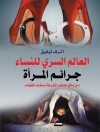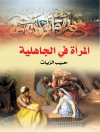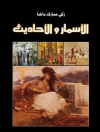The anthology 'The Life of Christopher Columbus’ is a compelling exploration of the legendary figure whose voyages changed the course of history. The collection offers a multifaceted narrative ranging from journalistic accounts to more literary interpretations of Columbus’s journeys. Within these pages, readers will engage with a spectrum of writing styles from historical analysis to narrative biography. The compilation brings together works that not only recount the events of Columbus’s life but also examine the cultural and societal impacts of his transatlantic expeditions, inviting readers to probe the complex legacy he left behind. In assembling this anthology, the featured authors, including Christopher Columbus and Edward Everett Hale, contribute a wealth of perspectives enriched by their distinct backgrounds and eras. Columbus’s own writings provide firsthand insights into his voyages and methodology, while Hale’s contributions offer a retrospective lens typical of the 19th-century literati. These works collectively align with the age of exploration’s broader historical narrative and reflect varying perceptions of Columbus’s impact on global history. The collaboration of these diverse voices results in a nuanced representation of exploration, inviting readers to consider both the daring ambition and the profound consequences of Columbus’s endeavors. 'Read 'The Life of Christopher Columbus’ for a journey through history that merges exploration with introspection. This collection stands as an essential educational resource, offering readers the chance to explore complex narratives and diverse interpretations all within one volume. It presents a blend of personal narratives and scholarly reflection, fostering a dialogue between different historical and cultural viewpoints. Readers seeking to understand the breadth of Columbus’s influence and the historical context of his discoveries will find this anthology a richly rewarding experience, providing both depth and diversity in its exploration of a pivotal historical figure.’}
O autorze
Christopher Columbus (1451-1506) was not an author in the conventional sense, yet his letters and other writings have been compiled posthumously to shed light on his voyages and experiences during the age of exploration. Columbus, an Italian explorer, is best known for his 1492 voyage across the Atlantic Ocean, which led to the European discovery of the American continents. While he authored no books during his lifetime, 'The Life of Christopher Columbus’ is a narrative constructed from his journals and letters by later historians and serves as a primary source for his exploits and the era’s mindset. Columbus’s writing style integrates observations with personal musings, frequently shaped by the political and religious contexts of his time. Notably, Columbus’s accounts were reflective of the Renaissance spirit of discovery and are critical to understanding the early stages of European colonialism. His narratives exhibit the ambitions of an explorer keen on finding new routes and territories, while also reflecting the cultural perceptions and biases of a European in the late 15th century. His writings not only document his journeys but also reveal the complexities of his character, ranging from visionary ambitions to the ethical and moral implications of his encounters with indigenous peoples. Columbus’s legacy as an author is inseparably linked to his actions as an explorer, both of which have been the subject of extensive debate and reassessment in modern scholarship.












